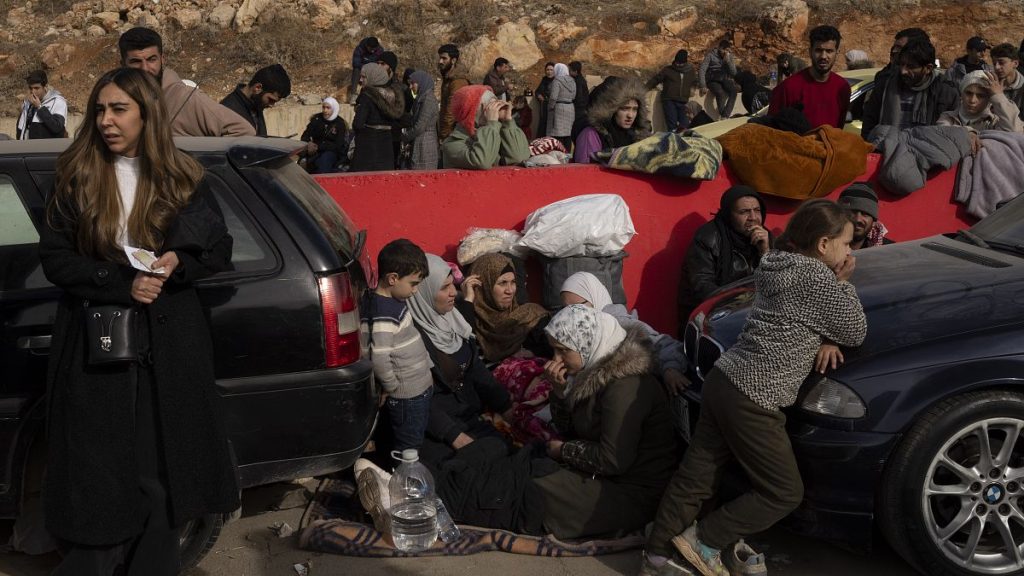The Syrian refugee crisis has placed an immense strain on Lebanon, a nation grappling with its own economic woes. With a population of 5.8 million, Lebanon hosts approximately two million Syrian refugees, representing the highest per capita refugee population globally. This influx, stemming from the Syrian civil war that erupted in 2011 following the brutal suppression of anti-government protests, has significantly burdened Lebanon’s resources. The competition for jobs, housing, and essential services has intensified, exacerbating existing economic challenges. Lebanese Prime Minister Najib Mikati, echoing growing sentiments across Europe, has called for the repatriation of Syrian refugees, arguing that the changed political landscape in Syria warrants their return.
The sudden downfall of Bashar al-Assad has sparked discussions across Europe regarding the future of Syrian refugees residing within their borders. Several countries, including Belgium, Denmark, Germany, and the Czech Republic, have suspended the processing of asylum applications from Syrians. While acknowledging the altered political dynamics in Syria, these nations maintain that conditions remain unsuitable for the safe and dignified return of refugees. The European Commission concurs, asserting that the necessary conditions for voluntary repatriation are not yet met. German Interior Minister Nancy Faeser, reflecting the cautious approach adopted by many European nations, has emphasized the need for a thorough assessment of the situation in Syria before considering repatriation, particularly regarding the protection of minorities and the general populace.
Amidst this cautious approach, some European nations are exploring incentives for voluntary repatriation. Austria, for instance, has offered a “return bonus” of €1,000 to Syrian refugees willing to return home. Austrian Chancellor Karl Nehammer justifies this initiative by stating that Syria needs its citizens for reconstruction. Similarly, Jens Spahn, former German Health Minister, has suggested a similar program involving chartered flights and financial assistance for returnees. This divergence in approaches underscores the complex and multifaceted nature of the Syrian refugee crisis and the varying perspectives on its resolution.
The influx of over a million refugees, primarily from Syria, into Europe in 2015 triggered a significant political crisis within the EU. Member states clashed over responsibility-sharing and the allocation of refugees, straining inter-EU relations. This tension persists, highlighting the enduring challenges posed by large-scale refugee movements. Despite the evolving situation in Syria, the flow of asylum seekers continues, albeit at a reduced rate. According to the EU’s asylum agency, almost 14,000 Syrians applied for international protection in Europe in the first nine months of the current year, compared to approximately 183,000 applications in the entire preceding year. The acceptance rate for these applications averages around one in three, indicating the ongoing need for protection for many Syrian refugees.
The UNHCR, advocating for a cautious and compassionate approach, has urged “patience and vigilance” in dealing with Syrian refugees seeking international protection. The agency emphasizes the critical role of Syria’s new leadership in upholding law and order and creating an environment conducive to safe and dignified returns. The future trajectory of the Syrian refugee situation hinges on the commitment of the new Syrian authorities to fostering stability, respecting human rights, and ensuring the safety and well-being of all its citizens, including returning refugees. Until these conditions are demonstrably met, the international community remains hesitant to endorse large-scale repatriation.
The Syrian refugee situation presents a complex and evolving challenge for both host countries and the international community. While the political changes in Syria have prompted discussions about repatriation, concerns about safety, stability, and the protection of human rights remain paramount. Balancing the desire to alleviate the burden on host countries with the imperative to protect refugees requires a nuanced and carefully calibrated approach. The situation calls for ongoing monitoring, assessment, and dialogue to ensure that any decisions regarding repatriation prioritize the safety, dignity, and well-being of Syrian refugees. A sustainable solution requires a concerted effort from all stakeholders, including host countries, the international community, and the new leadership in Syria, to create conditions that enable safe, voluntary, and dignified return for those who choose to go back, while continuing to provide protection and support for those who remain in need of international protection.














